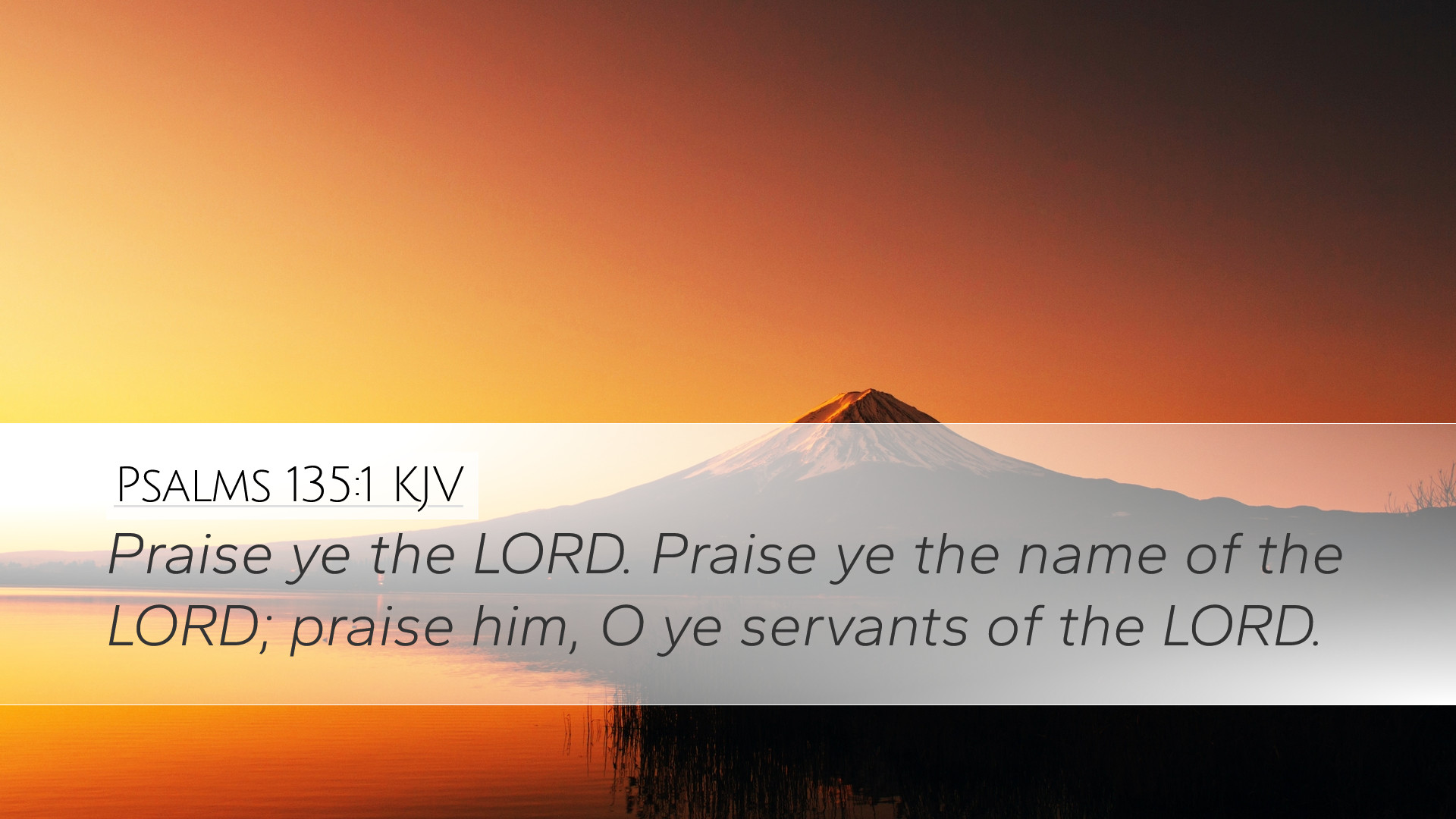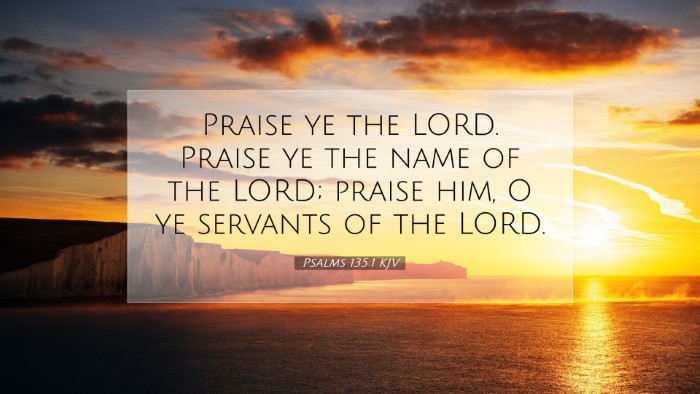Psalms 135:1 - Commentary Overview
Verse: "Praise ye the LORD. Praise ye the name of the LORD; praise him, O ye servants of the LORD."
Introduction
Psalms 135:1 serves as a call to worship, an instruction underpinning the essence of reverence and admiration towards God. This psalm, part of the Hallel (Psalms 113-118), emphasizes both personal and communal worship and addresses the importance of glorifying God throughout the congregation of His people.
The Call to Worship
The verse opens with an emphatic command: "Praise ye the LORD." This central directive establishes a tone of joy and zealous honor toward God. The use of “ye” indicates a collective participation, encouraging all of God's people, particularly those identified as His servants, to engage in acts of praise.
- Universal Call: The structure of this command implies that worship is not an individualistic act but rather a communal one, reflecting the understanding that worship can strengthen the body of believers.
- Divine Worship: The term "LORD" (YHWH) highlights God’s covenant relationship with His people, which further fuels the basis of worship.
The Name of the LORD
The verse continues with the directive to “praise the name of the LORD.” This phrase invites deeper reflection on the attributes and works associated with God's name.
- Significance of the Name: Throughout Scripture, the name of the LORD is synonymous with His character and His actions. By praising His name, worshippers acknowledge God's sovereignty, holiness, grace, and righteousness.
- The Nature of God: According to Albert Barnes, praising the name of the LORD emphasizes the believer's understanding of God’s infinite nature and His personal involvement in human affairs.
The Role of Servants
The phrase “O ye servants of the LORD” specifically addresses those who are dedicated to God’s service. This call to praise then becomes an observation of their duty and privilege.
- Servanthood and Worship: Matthew Henry comments on the connection of servanthood with worship, suggesting that true service to God must be reflected through joyful praise.
- Encouragement and Leadership: For pastors and leaders, this serves as a model of leading in worship—a reminder that they are among those who must engage actively in glorifying God.
Theological Insights
From a theological perspective, Psalms 135:1 encapsulates key themes relevant for believers and theologians:
- The Nature of God’s Glory: This verse sets the stage for understanding the revelation of God’s glory as seen in the worship of His people. As Adam Clarke notes, the acts of praise elevate God’s glory among the nations.
- The Community of Faith: The collective nature of praise signifies the unity within the body of believers, essential for spiritual health and witness to the world.
Application for Today
For modern believers, Psalms 135:1 holds valuable lessons:
- Encouragement to Praise: The constant reminder to fuel our worship with sincerity and joy serves both to uplift personal faith and to strengthen community worship.
- Holistic Worship: This verse suggests that worship must include acknowledgement of God's character and works, encouraging believers to engage thoughtfully and emotionally.
- Praise as a Lifestyle: The directive implies that worship should penetrate every aspect of life, establishing a lifestyle that reflects praise in all actions and decisions.
Conclusion
Psalms 135:1 is a profound invitation to worship, embodying the essence of a community dedicated to glorifying God. For pastors, theologians, and students alike, this psalm encourages reflection on the nature of worship, the significance of God’s name, and the vital role of His servants in proclaiming His majesty. Let every believer take this call to heart, engaging in meaningful worship that honors the LORD both individually and communally.


